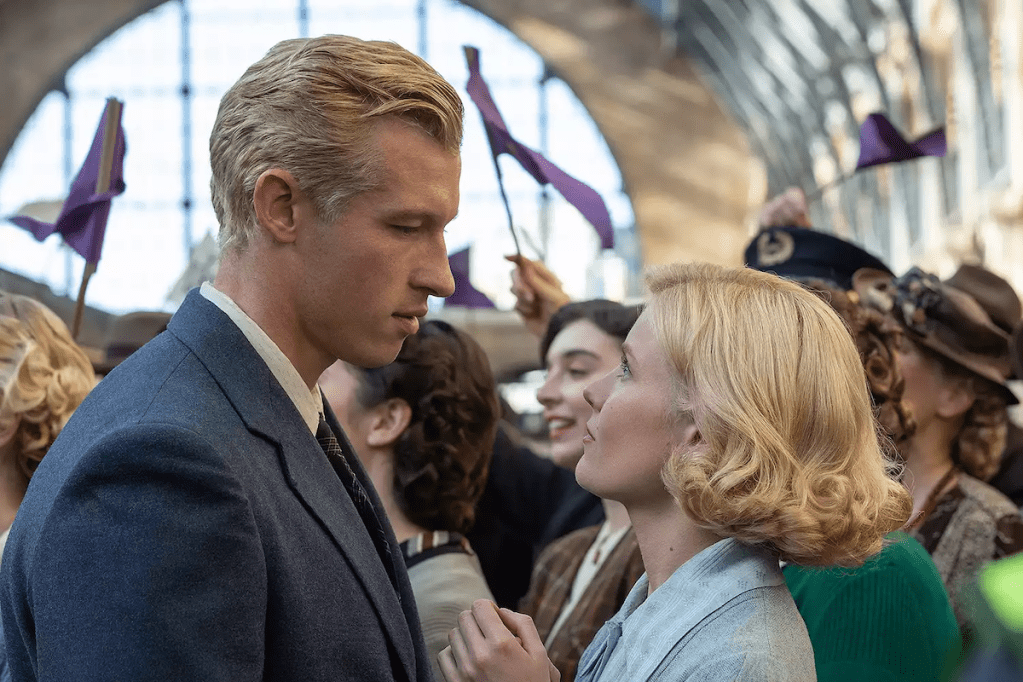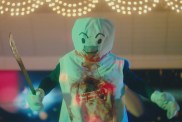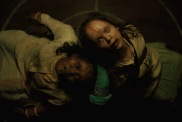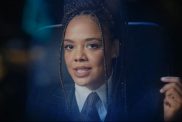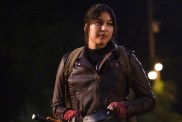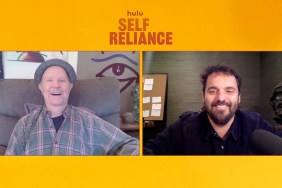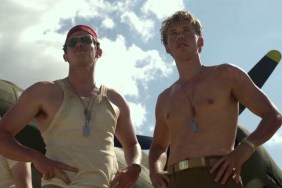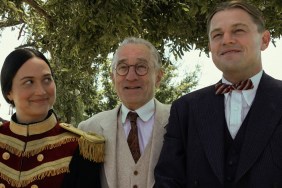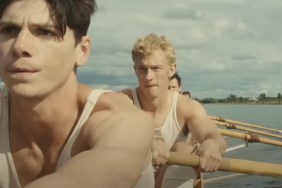ComingSoon Editor-in-Chief Tyler Treese spoke with The Boys in the Boat stars Callum Turner and Hadley Robinson about the biographical sports movie. The duo discussed the true story behind the film and portraying that era in history. The film is set to debut in theaters on Monday, December 25.
“The Boys in the Boat is a sports drama based on the #1 New York Times bestselling non-fiction novel written by Daniel James Brown,” reads the film‘s synopsis. “The film, directed by George Clooney, is about the 1936 University of Washington rowing team that competed for gold at the Summer Olympics in Berlin. This inspirational true story follows a group of underdogs at the height of the Great Depression as they are thrust into the spotlight and take on elite rivals from around the world.”
Tyler Treese: Callum, rowing is exhausting. What was the physical strain like for this movie? This seemed like such a physical performance.
Callum Turner: Yeah, we trained for two months before we started filming. Then, whilst we were filming, we’d wrap at three or four, and then we would continue to roll for another hour whilst everyone else went home. We joked that we’d rode past George [Clooney] with a glass of wine, and he’d salute us. [Laughs]. We’d be like, “Okay, man.” It was strenuous. What these guys are able to do is truly remarkable.
What our guys did is incredible, and being part of a team like that … when I read the book in preparation, I felt like I understood what they were talking about and the connection that you have being part of a team and being in the boat. It’s a different sport to something like basketball or football where, if you have a star player, they can change the game for you.
In rowing, you all have to be in complete unison. It’s the ultimate team sport. We learned that very quickly. We were all rubbish when we started off. We’d never done it before. And George and Grant [Heslov] came down to watch us after three weeks, and I think there was a little bit of panic in their eyes when they saw us, and they smiled through the pain. [Laughs].
But we knew that we weren’t doing a good job. In the final race in the Berlin Olympics, the guys got to 46 strokes per minute. Even three months into our training, we didn’t think we’d ever be able to achieve something like that. And we did, and I’m very proud of all of us for that.
Hadley, the relationship we see between Joyce and Joe is very sweet. I love the reconnection after childhood. What did you enjoy most about seeing the bond they have?
Hadley Robinson: I think my favorite part of their relationship is the fact that it’s one where you watch trust grow slowly over time. I think Joe has abandonment issues because of his situation with his family. His mother dying, then being abandoned by his new family, and then sort of being abandoned by the country. There are a lot of trust issues.
So the fact that they are able to lean on each other when they can’t really lean on anything else. That’s shown in him leaning on his teammates, as well. All these relationships are just about building trust, and that’s really beautiful. And growing in intimacy and, also … the fact that they met when they were so young and then spent their entire lives together, that’s really beautiful to see, too. You’re seeing them at the very beginning when they’re first falling in love.
Callum, I did a whole deep dive after seeing the movie. What was remarkable was that I thought they added some extra drama and elements to make the story more compelling, but every single time I thought something must have been added, it actually happened. When you were doing research and seeing what a remarkable story it was, how does that go into your portrayal?
Callum Turner: Joe, individually and then, like you’re saying, towards the end of the film, when the coach gives money from Cal to Washington, that seems like a movie moment, and them not hearing the gun seems like a movie moment. Don Hume not being well seems like it’s made up, but the truth is stranger than fiction. For Joe, the thing that got me at the beginning was when he was 13. After years of abandonment and other things that had gone on, he comes home from school one day, and the car’s running, his stepmother’s in the front, his siblings are in the back, and everything’s on the top, and his dad’s on the porch, and he says, “Where are we going?” His dad says, “We are going. You are not. You’re staying.”
He was 13 years old, and my heart broke. I read that, and I just thought, “I really want to take on the responsibility of representing this human being.” And it’s a beautiful, beautiful human that’s graced the earth. I talked about the connection that these guys had. They rode once a year for 50 years as a reunion thing, and they really loved each other. I honestly couldn’t imagine what it would’ve been like as a 13-year-old boy having to fish for salmon just to survive, bus on the street, and still put himself through school. What he was able to achieve is nothing short of remarkable.
Hadley, the film takes place in the 1930s. What was your favorite aspect of doing a period piece?
Hadley Robinson: It’s interesting, because it’s the Depression and the worst part of the Depression. I don’t know if Joyce, in life, necessarily would’ve been wearing clothes that were as beautiful — maybe it had been inherited or something like that — but she certainly looks good all the time. [Laughs]. Jenny Eagan did such a good job with the costumes, and everything fit perfectly and was so wearable. My favorite costume was this dress that I wear that’s blue, and it just flowed when we’re running down the path and we’re going back to my dorm room and the party. It captured Joyce’s soul and energy, in a lot of ways, and that was really cool to see.
Callum Turner: This is like a throwback to an old-school Hollywood movie, you know? We really lent into the styles and the ideas. The cinematography and everything — even our kiss on the train station. We were joking that we had to kiss in an old-school Hollywood way rather than … it’s not a modern kiss. Trying to transport everyone back into that era was our goal. I looked at characters like Spencer Tracy and Gary Cooper and just trying to find Woody Guthrie, trying to find the energy of the time and just transport everyone back.
Callum, Joe has those trust issues and he’s not the most talkative fellow, but one thing that really impressed me about your performance is you’re always able to, through body language, show exactly how he was feeling at that point. How was it thinking about your body movement?
Callum Turner: Men in those days didn’t talk about their emotions ever, you know? So how would they transmit how they’re feeling? Everything is about getting up and going, right? Just surviving and living hand-to-mouth and supporting each other in the way that they know how. Gary Cooper was a big influence in High Noon. That movie, I don’t know if you’ve seen that, and Mr. Deeds Goes to Town is another one — this idea of masculinity and the time and trying to embody that feeling. Like you said, he’s someone that’s been abandoned so much that he can’t hurt anymore. He can’t allow himself, so he’s got this wall up, which means that he’s so protective and you really open him up.
I think Joyce really opens him up in that respect and allows him to feel again, and that’s what you were saying about the trust. They’re able to trust each other. It’s in subtle increments. It’s like, “Okay, I’m going to show you this, and I’m going to show you that. I’m going to prove, and I’m going to prove.” And they just gently allow each other to be themselves. It’s a really beautiful relationship, I think.
